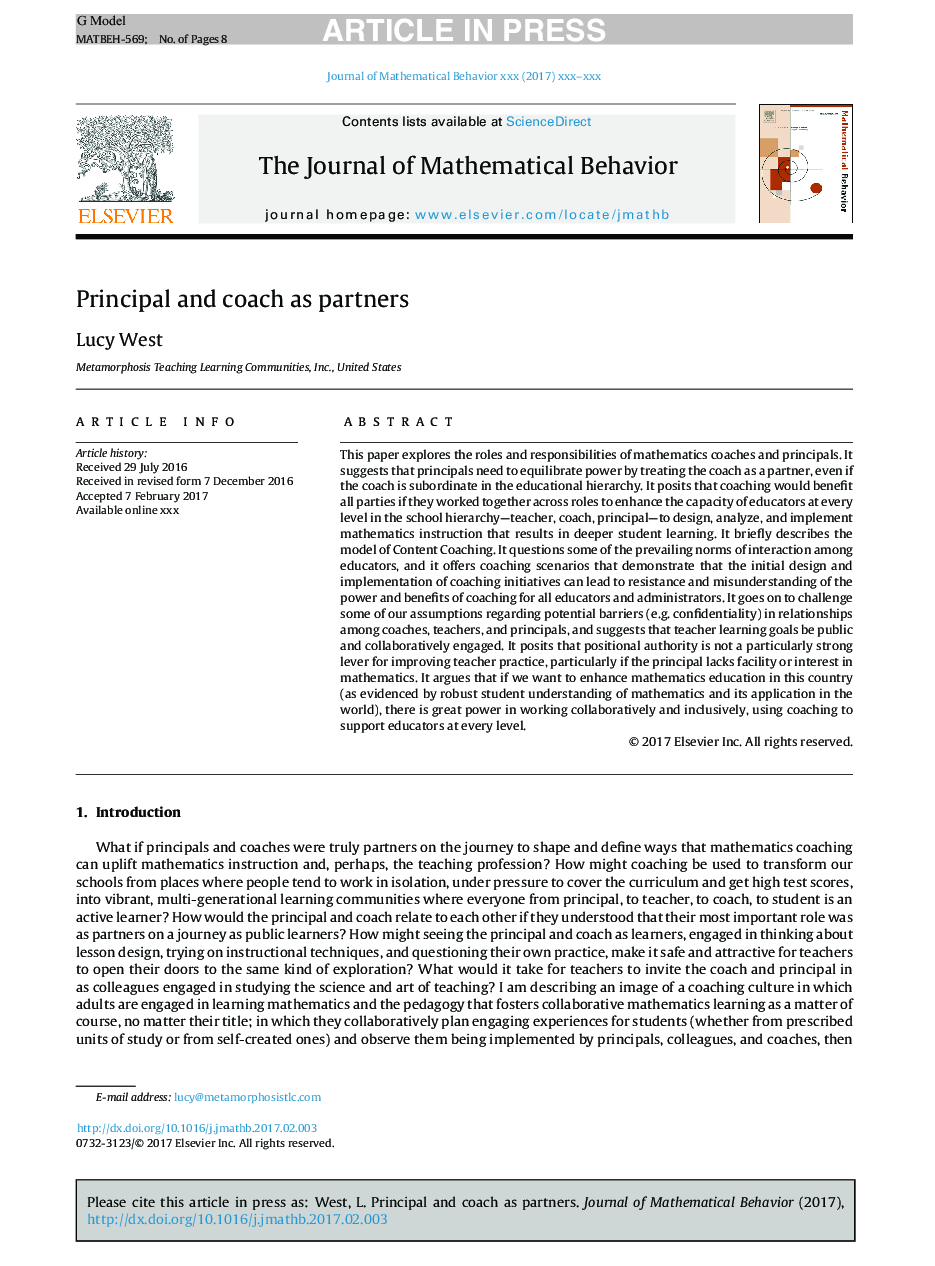| Article ID | Journal | Published Year | Pages | File Type |
|---|---|---|---|---|
| 4939314 | The Journal of Mathematical Behavior | 2017 | 8 Pages |
Abstract
This paper explores the roles and responsibilities of mathematics coaches and principals. It suggests that principals need to equilibrate power by treating the coach as a partner, even if the coach is subordinate in the educational hierarchy. It posits that coaching would benefit all parties if they worked together across roles to enhance the capacity of educators at every level in the school hierarchy-teacher, coach, principal-to design, analyze, and implement mathematics instruction that results in deeper student learning. It briefly describes the model of Content Coaching. It questions some of the prevailing norms of interaction among educators, and it offers coaching scenarios that demonstrate that the initial design and implementation of coaching initiatives can lead to resistance and misunderstanding of the power and benefits of coaching for all educators and administrators. It goes on to challenge some of our assumptions regarding potential barriers (e.g. confidentiality) in relationships among coaches, teachers, and principals, and suggests that teacher learning goals be public and collaboratively engaged. It posits that positional authority is not a particularly strong lever for improving teacher practice, particularly if the principal lacks facility or interest in mathematics. It argues that if we want to enhance mathematics education in this country (as evidenced by robust student understanding of mathematics and its application in the world), there is great power in working collaboratively and inclusively, using coaching to support educators at every level.
Related Topics
Physical Sciences and Engineering
Mathematics
Applied Mathematics
Authors
Lucy West,
